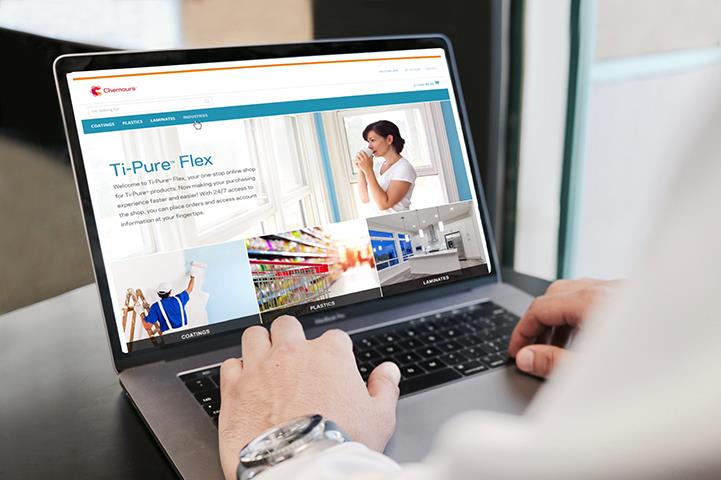5 Things You Need To Know About The European Unions Latest TiO₂ Regulatory Updates
Working within a global market requires global responsibility. Use and manufacturing of all chemical substances, including titanium dioxide (TiO₂), must follow strict regulation, testing, and approval processes to ensure health, safety, and minimize environmental impact. Since products can be produced in one country and afterwards be exported to many other countries around the world, it is essential to be aware of the different regulatory requirements that apply across jurisdictions. For example, the European Union (EU), recently changed their regulatory requirements for TiO₂. Even though you may not be producing within the EU, your products may end up being shipped to EU countries. Therefore, we believe it is important to share information about the EU classification of TiO₂, the impacts of this specific classification, why it all matters for your business, and how Chemours fits in.
1. EU Classification of TiO₂:
In an everchanging industry, being chemically responsible matters. Mining and manufacturing TiO₂ are intricate processes, but the work doesn’t stop there. Classifying, labeling, and packaging (CLP) chemical substances is required to warn consumers about potential hazards. In February 2020, the EU published the classification of certain powder forms of TiO₂ as a suspected carcinogen (category 2, suspected of causing cancer) by inhalation under the CLP regulation.
2. Impacts of the EU Classification:
So, what does this mean? The classification of TiO₂ as a carcinogen only applies to TiO₂ in powder form containing > 1% or more of particles with an Aerodynamic Diameter ≤ 10 µm (Aerodynamic Diameter = the diameter of a sphere with a density of 1g/cm3 having the same terminal velocity, due to gravitational force in calm air, as the particle, under the prevailing conditions of temperature, pressure, and relative humidity). But according to the Titanium Dioxide Manufacturer's Association (TDMA), this classification does not correlate with a vast body of scientific evidence that demonstrates that TiO₂ does not cause cancer in humans. Regardless, as of October 1, 2021, the classification applies.
What do the classifications look like? Liquid and non-powder solid mixtures containing TiO₂ will not be classified, but specific EUH211 (liquid mixtures) & EUH212 (solid mixtures) warning phrases must be applied. Solid mixtures containing more than 1% of TiO₂ must carry the EUH212 warning phrase, whether or not the TiO₂ is classified. For liquid mixtures, there is only a need to carry the EUH211 warning phrase if they contain 1% or more of TiO₂ particles with aerodynamic diameter equal or below 10 micron. Products carrying the EUH211 or EUH212 label and not intended for the general public should also carry the EUH210 phrase. (This Safety Data Sheet is available upon request.) Because new rules are complicated, the European Chemicals Agency (ECHA) recently published a guidance on the classification of TiO₂ to help.
3. Measurement Methods:
While the ECHA guidance clarifies when a product is classified or not and what labelling is needed, it doesn’t mention how to measure compliance with the requirement “containing 1% or more of particles with aerodynamic diameter ≤ 10 µm”. Aerodynamic diameter must be determined in air, by creating an aerosol. As there is no officially approved test-method at EU level to measure compliance with this requirement, TDMA members (including Chemours) engaged in an analytical program to test the suitability of a series of national & international recognized “dustiness” test-methods for measuring compliance vs. the EU classification criterion of “containing 1% or more of particles with aerodynamic diameter ≤ 10 µm. Based on the results of this TDMA analytical testing program, EN15051-2 (rotating drum method) is an internationally recognized method, designed to mimic the dustiness of solid materials during typical handling and manipulation in the workplace. It is applicable to a wide range of sample types and represents a large range of handling conditions. This process was found to provide the most consistent and repeatable results, becoming the European standard method for measuring compliance versus the classification criterion. This is also the method that was used by Chemours to evaluate its Ti-Pure™ TiO₂ product portfolio. The data from the Chemours testing consistently shows that all the Ti-Pure™ grades of TiO₂ contain < 1% of particles with aerodynamic diameter ≤ 10 μm; and therefore, based on this testing, do not meet the criteria for classification.
4. Communication:
The classification also requires clear and consistent communication around TiO₂ regulations. The TDMA issued its first TiO₂ classification guidance in June 2020 (and made updates in Fall 2021). At Chemours, we share regular updates on this classification process, and we have updated our packaging to reflect the required EU regulatory phrases where needed. Safety Data Sheets (SDS) have also been updated and are online available for our customers to access at any time. In addition, our team has held multiple webinars and had direct communication with our customers to keep you informed of any and all changes, as they happen.
5. Why Regulatory Updates Matter for Your Business:
The TiO₂ Industry has always been committed to the safety of its employees and users by providing information, regulations, and guidance on safe use. It’s important to stay current on industry standards to help protect your business, consumers, and the environment. Even if you’re not directly doing business in the EU, European regulations often lead the world, so it is worthwhile to be aware of, and even follow, the most stringent regulations to help minimize the risk to your business down the road. Here at Chemours, we stay ahead of regulatory guidelines and updates, so that our customers always have suitable, safe, and usable products that are essential to your business. We can help you save cost, stay safe and in compliance, and have a team you can trust throughout the process.
How Chemours Can Help:
We’re industry experts who care. Our products like Ti-Pure™ titanium dioxide are safe, compliant with all regulatory measures, and bring peace of mind. Through our Ti-Pure™ website and secure online Ti-Pure™ Flex Portal, you can browse our product catalog, have flexible purchasing, standard pricing, see up to a six-month lead time, and get rapid order confirmation. With the right tools and information, you can better plan for your business.
Contact us today to sign up for Flex and opt-in for Regulatory Updates.




